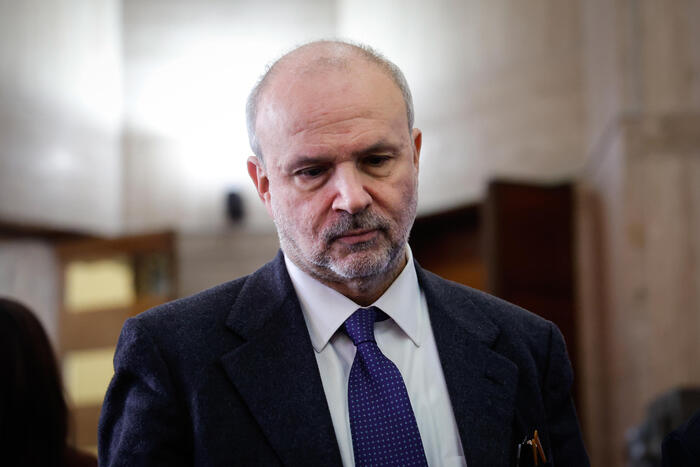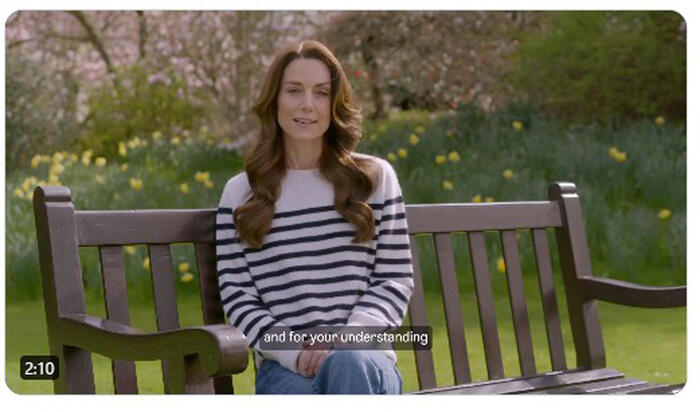While she was being cured of cancer, Yaiza Cumelles received a phone call to offer her life insurance.
“Yes, I'm interested,” she said.
The commercial then asked her what she did, if she was working.
“I replied no, that at that time she was receiving treatment for cancer.
She simply replied: 'Okay, good afternoon and thank you'.
And she hung up on me, ”recalls the young woman.
Cumelles was 21 years old at the time, and now, at 30, she maintains that the situation has not changed at all.
“With banks, mortgages, or insurance, I don't even consider it.
Because I already know what the answer is, ”she assures.
Cumelles' experience, which he shared this week in a Twitter thread that went viral, exemplifies the obstacles people with a history of cancer face when they want to take out a life or health insurance policy.
The complicated treatment and the vital risk during the disease have long-term consequences for the daily life of these patients.
That is why they claim their right to oncological oblivion.
Not the right for the rest of the population to forget them, but for their illness to stop conditioning their chances of getting insurance or a mortgage.
“The right to be forgotten is, basically, that ten years have passed since the last treatment —five in the case of minors— and the cancer has been overcome,
Do you know that if you have had cancer you cannot have life insurance, a mortgage or a loan?
I explain what the right to oncological oblivion is 👇
— Yaiza Cumelles (@YaizaCumelles) March 28, 2023
83% of leukemia patients or ex-patients between the ages of 18 and 35 state that they have had difficulties in taking out life insurance.
78% have experienced it with deaths.
These are data from the study
Young people and leukemia: Beyond survival
, carried out by the Josep Carreras Foundation last year, and for which they interviewed 295 young people who suffered from or had suffered from the disease.
The report also reveals barriers to access to housing: 44% of those who tried to get a mortgage had some kind of difficulty, and 33% suffered it to get rental housing.
Half of those surveyed say they have had some difficulty applying for a loan.
The European Parliament includes the right to be forgotten oncology in a 2022 resolution. Specifically, in resolution 124, where it marks 2025 as the limit for countries to incorporate the right to be forgotten for people with cancer into their legislation.
The objective, says the text, is to prevent insurers and banks from taking into account the medical history of patients when requesting a loan, buying a house or taking out life insurance.
National regulations must guarantee "that cancer survivors are not discriminated against in comparison with other consumers".
Within two years, all Member States will have to guarantee the right to be forgotten to all European patients "10 years after the end of treatment" and, at the latest,
In Spain there are similar precedents to the European proposal, such as the reform of the Insurance Contract law in 2018 (law 4/2018) to include that "people with HIV/AIDS or other health conditions may not be discriminated against", although it is not specified what conditions those are.
However, Carlos Lluch, insurance broker and collaborator of the Association of Financial Users (ASUFIN), defends that the companies that are dedicated to personal insurance do not comply with these conditions, and denounces the discrimination resulting from the process, not only to patients of cancer, but also to people with disabilities or in some situation of vulnerability.
“These practices are outright illegal,” he says.
"If you search on one of its web pages for information that indicates, previously and objectively,
In the case of mortgages, having life insurance has never been mandatory to request them, but it is advisable.
“The people who have achieved it have done so with worse conditions than the rest.
With a very high policy that covers almost nothing, and that in the event of death they don't pay you,” says Cumelles.
"This is what ends up happening, or that data is denied, or that data is falsified to obtain them," continues Lluch.
In some cases of the death of a person with cancer who has not been surveyed or who, if answered, has decided to lie about her health status to get it, the bank refuses to make it effective.
My mother took out a loan after she got over cancer.
The bank did not do a health survey and they took out death insurance for that credit.
Two months later my mother passed away and the bank refuses to pay the insurance https://t.co/VTnZ0wcqFH
— Jack the Woodcutter
(@EvaMartin1998) March 30, 2023
For Lluch, a possible way of defense for consumers and users is to go to the Spanish Agency for Data Protection, and report that they have requested unnecessary information.
"The legislation on data protection says that the data that is requested and kept must be pertinent, that is, that it must be adequate and essential," he specifies.
For example, in personal insurance for years you cannot ask if you are a man or a woman, and the price of the rates must be the same for both.
“But then why do you ask?
If you can't discriminate based on health conditions, why are you asking for that data?”, raises the insurance broker, who emphasizes the need for associations and politicians to do logistical work to ensure compliance with the law.
The constant obstacles in these procedures leave Cumelles tired.
“I don't know when they will get around to it or if they will do more to prevent discrimination than simply add a non-discrimination law that is not applied in practice,” says the young woman.
Spain is, along with Iceland and Malta, one of the three EU countries that have not yet regulated the right to be forgotten.
The young woman insists: "Overcoming cancer and only finding closed doors makes you wonder if it was really worth fighting so hard."
Subscribe to continue reading
Read without limits
Keep reading
I'm already a subscriber















